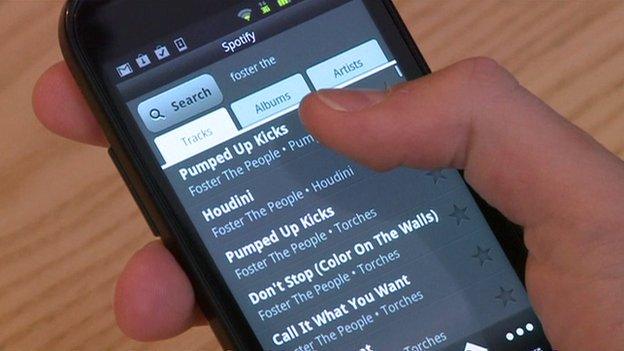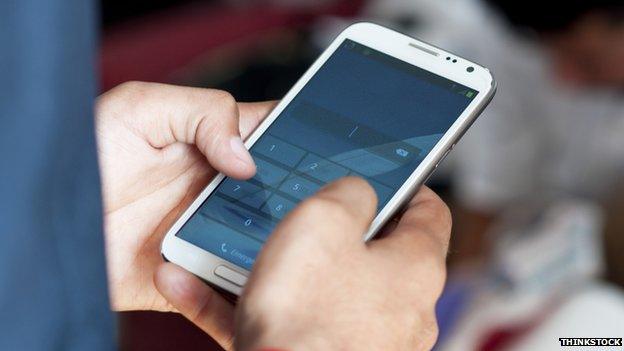Smartphones overtake laptops as favoured internet device
- Published

Smartphones have overtaken laptops as the favoured device for accessing the internet in Scotland.
Ofcom Scotland said the findings of its latest communications survey showed the nation was a "smartphone society".
About 37% of respondents mostly used phones to get online compared with 26% for laptops and 27% for tablets.
Phones were particularly favoured by younger people with half of 16 to 34-year-old internet users saying they were the most important device.
Ofcom Scotland director Vicki Nash said: "Scotland is now a smartphone society. It's the device of choice for accessing the internet.
Portable devices
"I think part of the attraction is you can be mobile with a smartphone. You can be mobile with a tablet or a laptop but smartphones are much more portable and you can do whatever you want to do, whenever you want to do it, wherever you want to do it."
The report found:
Just over six in 10 (63%) adults in Scotland now own a smartphone, slightly below the UK average of 66%.
Take-up of 4G service among smartphone owners rose by 25% between 2014 and 2015 to reach 55%, higher than the UK average of 45%.
Tablets have increased in popularity in the past year, with more than half of adults (52%) now owning a tablet computer, up from 42% last year.
Internet users in Scotland now spend 19.9 hours online each week on average.
Almost three-quarters (73%) of Scottish households now have access to fixed and mobile broadband at home while 59% of adults have online access through a mobile phone.
The study also found changes in the way people viewed TV content, with fewer people likely to watch it at the time it is transmitted as catch-up viewing becomes increasingly popular.
There was a net increase of 36% for people watching non-subscription catch-up such as iPlayer and 24% for watching content that had been personally recorded.
The report also found that adults living in Scotland are the least likely in the UK to send post, with more than a third (36%) saying they had not sent any in the past month.
The research involved 3,756 people aged over 16 across the UK, including 492 in Scotland, in January and February this year.
- Published7 August 2014
